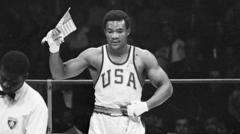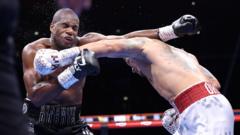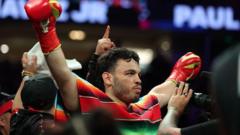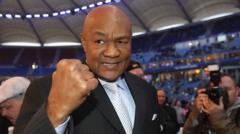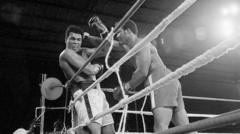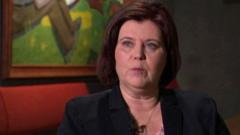George Foreman, the renowned boxing heavyweight champion whose influence transcends the ring, has passed away at the age of 76, as confirmed by his family. Affectionately known as "Big George," Foreman's boxing career began in the 1960s, during which he secured numerous accolades, including an Olympic gold medal and the world heavyweight title on two occasions.
Born George Edward Foreman on January 10, 1949, in Marshall, Texas, his amateur boxing journey reached its peak at the 1968 Olympic Games in Mexico City, where he proudly waved a U.S. flag following his win. In his autobiography, Foreman articulated the dual pride he felt representing both himself and his country.
Foreman turned professional in 1969, quickly climbing the ranks with an impressive 37-fight winning streak by 1972, including 35 knockouts. His pursuit of the heavyweight championship was fulfilled in 1973 when he knocked out Joe Frazier, the then-undefeated champion. At just 24 years of age, Foreman claimed the title and successfully defended it on two occasions.
However, his reign faced a significant challenge when he lost to Muhammad Ali in the legendary "Rumble in the Jungle" in 1974, a defeat he later described as the "most embarrassing moment" of his life. Reflecting on that night, Foreman noted, "It went from pride to pity. That's devastating."
After a disappointing loss to Jimmy Young in 1977, Foreman made a transformative decision to retire from boxing and dedicated himself to his faith, becoming an ordained minister in 1978. He established the George Foreman Youth and Community Center, aiming to uplift young people in his community. He later remarked that his defeat to Ali became the catalyst for sharing his message of hope and strength through his preaching.
Following a nearly decade-long hiatus, Foreman made a triumphant return to boxing in 1987, motivated by the need to earn funds for his youth center. His comeback was marked by 24 victories before facing Evander Holyfield in 1991. In 1994, he entered the realm of business as the successful face of the "Lean Mean Grilling Machine," all while achieving the remarkable milestone of becoming the oldest heavyweight champion at age 45. He eventually retired from the sport in 1997 with an impressive record of 76 wins and just 5 losses.
Foreman's personal life included fathering 12 children, five of whom share his name, a decision he made to forge a unique bond with them. He continued his commitment to ministry, preaching regularly until his death. George Foreman's journey, marked by resilience and transformation, extends beyond his boxing legacy, leaving an indelible mark on both sport and community service.

